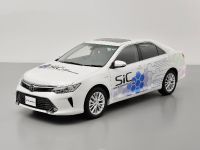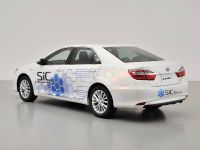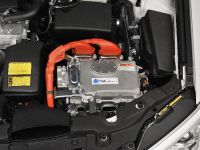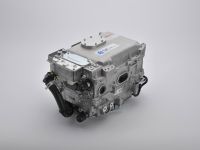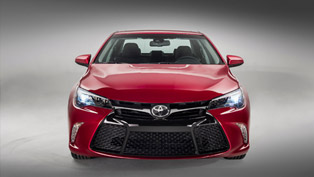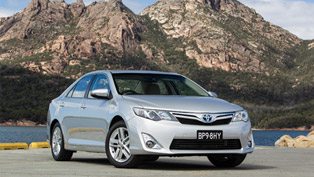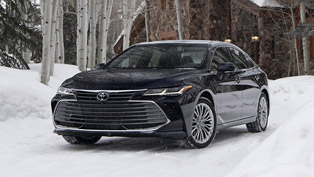Toyota Camry Hybrid to be Even More Efficient? See the Prototype!
 Toyota announced that it is currently conducting tests on a new technology that could make hybrids and other vehicles with electric powertrains even more efficient. A trial, which will take one year, will be conducted in Japan and will rate the performance of new power semi-conductors that work with silicon carbide (SiC) material. They will be fitted to a Camry hybrid prototype and a hydrogen fuel cell-powered bus.
Toyota announced that it is currently conducting tests on a new technology that could make hybrids and other vehicles with electric powertrains even more efficient. A trial, which will take one year, will be conducted in Japan and will rate the performance of new power semi-conductors that work with silicon carbide (SiC) material. They will be fitted to a Camry hybrid prototype and a hydrogen fuel cell-powered bus.
These conductors can be seen in hybrids and other EVs, and are found in the power control units that govern the motor. They manage the exact use of electricity and send the power from the battery to the motors when the car is being driven. Of course, they also recharge the battery during braking or deceleration.
At the moment, the conductors used account for 20 per cent of a vehicle's electrical losses. And this is the reason that made Toyota take the decision to increase the efficiency of the complete powertrain. This will happen via the development of high-quality SiC type conductors create less resistance when electricity flows through them.
The tests will be conducted on Camry hybrid prototype and a hydrogen fuel cell-powered bus. Toyota has installed SiC power semiconductors, meaning transistors and diodes, in the PCU's internal voltage step-up converter and the inverter that controls the motor. It will gather all the needed information, including PCU voltage and current, and driving speeds, patterns, and weather conditions.
Toyota will compare the new data to the previous one, collected from the conductors currently in use, and then will assess the level of efficiency achieved. The Camry road test will take place in Toyota City and will last more than a year. They will begin in early February.
Source: Toyota
